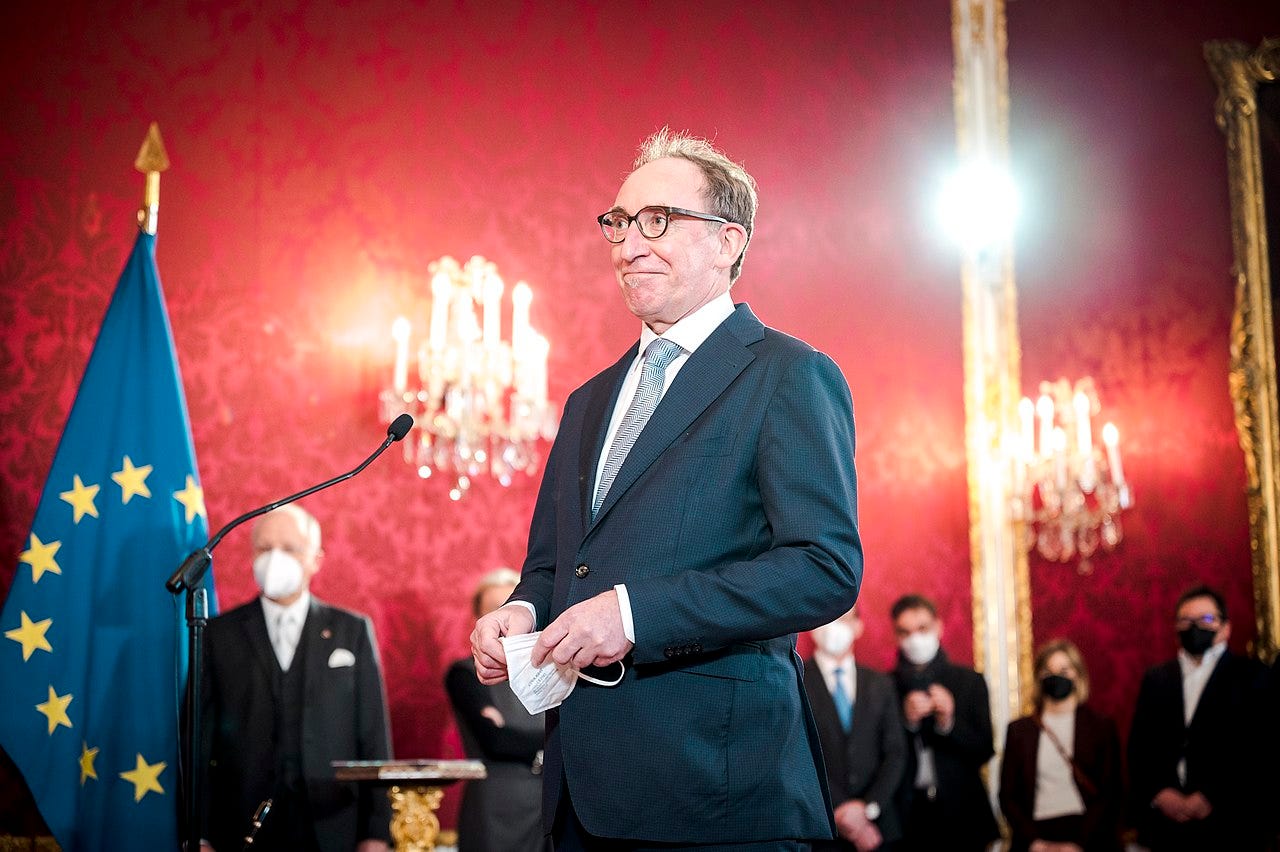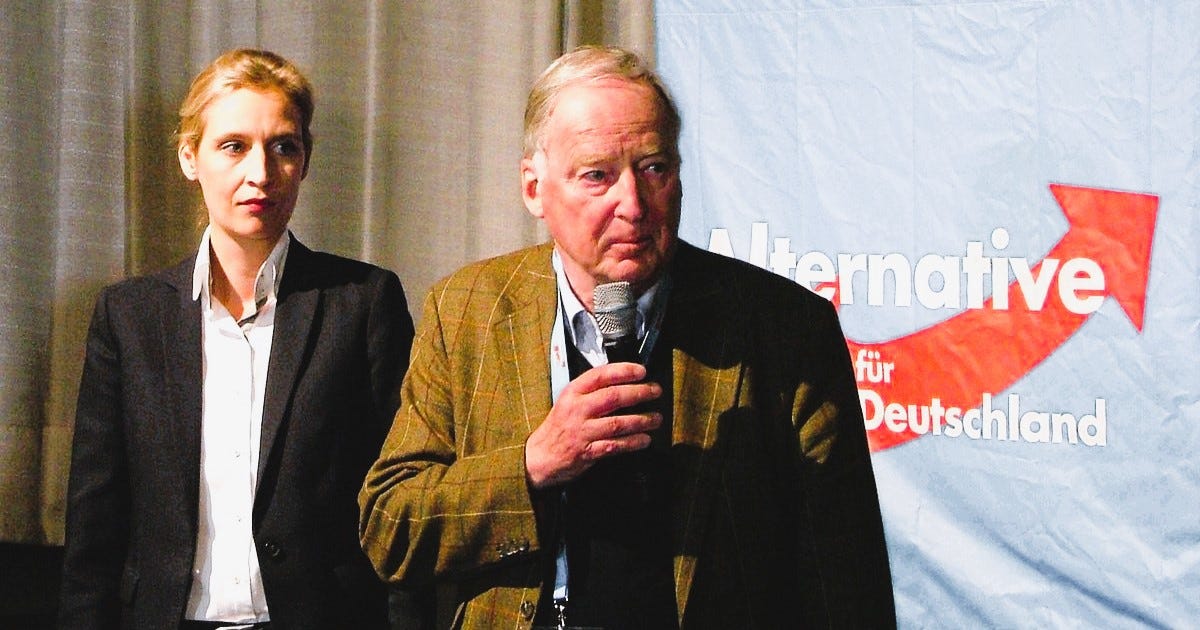#54: FRENCH PRIDE PARADE EXCLUDES LESBIANS
Germans counter-signal pride month by promoting national flag + Austria's state funded "rimming" and "doggy style" campaign + researcher acquitted over study on migrants and rapes + MORE!
LESBIAN ASSOCIATION BANNED FROM FRENCH PRIDE EVENT FOR REJECTING TRANSWOMEN
A unisex association of lesbian and bisexual women, Femmes entre elles, has been excluded from the Rennes Pride March, which will take place on June 4, 2023.
The reason given by the organizers, Iskis, the Rennes LGBTI+ Center, is that the association’s statutes specify that it is “open to all women born female who wish to be included”. This criterion is considered discriminatory and transphobic by Iskis, who claims to defend the diversity and inclusion of all LGBTI+ people.
Femmes entre elles is an association based in Rennes that has been active for over 30 years. It offers various activities and events for homosexual and bisexual women, such as carpooling, hiking, workshops and parties. The association also participates in civil rights movements such as women’s rights and gay rights. It defines itself as a “non-mixed” space where women can meet, share and support each other.
The decision to ban Femmes entre elles from the Pride March has sparked outrage and incomprehension among many lesbians and feminists, who see it as a form of lesbophobia and censorship. They argue that lesbian women have the right to choose their partners and their associations according to their own criteria, and that they should not be forced to accept men who identify as women in their spaces.
The controversy over Femmes entre elles follows another incident involving transgender activists and a lesbian pub owner in Rennes. In May 2023, the LGBT pub “La Part des Anges” was vandalized by transgender activists as reported earlier by THE OUTER EDGE.
GERMANS COUNTER-SIGNAL PRIDE MONTH WITH NATIONAL FLAG
A group of critics of the mainstream Pride Month celebrations in Germany have launched their own version of the event, using the German flag instead of the rainbow flag as a symbol of their identity.
The initiative, called “Pride Month Germany” or #StolzMonat, has become the number one trend on Twitter in Germany, sparking heated debates and reactions.
According to the organizers, Pride Month Germany aims to celebrate “the diversity of sexual orientations and gender identities in Germany” and to promote “a positive image of Germany as a tolerant and open-minded country”.
They claim that they are not against the LGBT+ community, but rather against the “political instrumentalization” of the rainbow flag by left-wing parties and movements.
They also argue that the rainbow flag does not represent all Germans who identify as LGBT+, and that some of them feel more comfortable with the national flag, which they see as a sign of patriotism and pride.
However, their initiative has been met with fierce criticism and backlash from many LGBT+ activists and allies, who accuse them of being homophobic, nationalist and divisive.
They say that Pride Month Germany is an attempt to undermine and co-opt the original meaning and purpose of Pride Month.
AUSTRIA’S STATE-FUNDED CAMPAIGN ABOUT “RIMMING” AND “DOGGY STYLE”
A new campaign by the Austrian Minister of Social Affairs, Health, Care and Consumer Protection, Johannes Rauch, has provoked a massive backlash from the public and the opposition parties.
The campaign, which aims to raise awareness about sexually transmitted diseases and promote safer sex practices, uses explicit terms such as doggy style, rimming and scissoring on posters and beer coasters that will be distributed in clubs, bars and other venues.
The campaign, which is estimated to cost tens of thousands of euros for the taxpayers, has been widely criticized as vulgar, inappropriate and ineffective.
Many people have expressed their anger and disbelief on social media platforms and online forums, calling the campaign a waste of money and an insult to the intelligence and dignity of the citizens.
Some have also questioned the priorities and competence of the Green Minister, who took office in March 2022, at a time when the country is facing serious challenges such as bed shortages in hospitals, rising COVID-19 cases and vaccination hesitancy.
The campaign has also been denounced by some of Rauch’s coalition partners from the conservative People’s Party (ÖVP), who have distanced themselves from the initiative and demanded an explanation from the Minister.
Rauch has defended his campaign as a necessary and innovative measure to address a serious public health issue. He said that he wanted to use “clear language” that would appeal to young people and encourage them to protect themselves and their partners from sexually transmitted diseases.
AFD SEES HISTORIC SURGE IN POLLS
Alternative for Germany (AfD) party has reached a new high in national opinion polls, challenging the Social Democrats of Chancellor Olaf Scholz for the second place behind the conservative CDU-CSU bloc.
According to the latest DeutschlandTrend survey, conducted by infratest dimap for public broadcaster ARD, the AfD would win 18% of the vote if elections were held on June 3 and 4, 2023, while the SPD would get 18%, the CDU-CSU 29%, the Greens 14% and the FDP 7%.
The AfD, which was founded in 2013 as an anti-euro party and later shifted to an anti-immigration and anti-establishment platform, has been gaining ground amid rising dissatisfaction with the center-left coalition government of the SPD, the Greens and the FDP, which took office in January 2020.
One of the main issues that has eroded the government’s popularity is its climate policy, which has been criticized by many voters as too radical, costly and unrealistic. The government has proposed a ban on fossil fuel heating systems from 2024, which would require homeowners to switch to renewable energy sources such as heat pumps or solar panels.
The AfD’s rise in polls has alarmed the mainstream parties, especially the SPD and the Greens, who have accused the party of spreading hate, division and misinformation.
The AfD’s strong performance in polls comes ahead of several state elections this year, which could test the party’s ability to translate its popularity into seats and influence. The party is expected to do well in some eastern states, where it has already become the strongest force in previous elections.
RESEARCHER WHO DISCOVERED LINK BETWEEN RAPES AND MIGRANT BACKGROUNDS ACQUITTED AFTER TWO YEAR INVESTIGATION
A Swedish researcher who conducted a study on rape and immigration has been cleared of charges of illegal research brought against her by a prosecutor.
Professor Kristina Sundquist of Lund University and two of her colleagues had been accused of lacking ethical permission to use sensitive personal data in their study, which found that most of the convicted rapists in Sweden were immigrants.
The study, titled Swedish Rape Offenders — A Latent Class Analysis, was published in 2020 in the journal Forensic Sciences Research. It analyzed more than 3,000 verdicts in rape cases handed down between 2000 and 2015, and used information from the Swedish Crime Register and other population-based registers.
The study attracted a lot of attention and controversy because of its findings, which contradicted the official narrative that immigration and crime had no correlation. The study was reported to the police by the Appeal Board for Ethical Review (ÖNEP), a national body under the Swedish Ministry of Education, which claimed that the researchers had violated the Ethics Examination Act by using sensitive personal data without proper permission.
The researchers denied any wrongdoing and argued that they had obtained an ethics assessment permit from the Regional Ethics Review Board in Lund, which covered their use of data. They also said that they had followed the principles of good research practice and data protection, and that their study had an important scientific and social value.
Today, the prosecutor has finally dismissed the cases against the researcher, and Sundquist will therefore not be prosecuted.
Sundquist has expressed her relief and satisfaction with the outcome of the investigation, and said that she hopes that her research will contribute to a better understanding and prevention of rape crimes in Sweden.
She also said that she hopes that her case will not discourage other researchers from conducting similar studies in the future.
#52: LESBIAN BAR SHUTS DOWN AFTER DEATH THREATS FROM TRANS ACTIVISTS
LESBIAN BAR SHUTS IT DOORS AFTER DEATH THREATS FROM TRANS ACTIVISTS A feminist bar that caters to lesbians and the gay community in Rennes, France, called La Part des Anges, has been forced to shut its doors after a campaign of threats and harassment from transgender activists.









